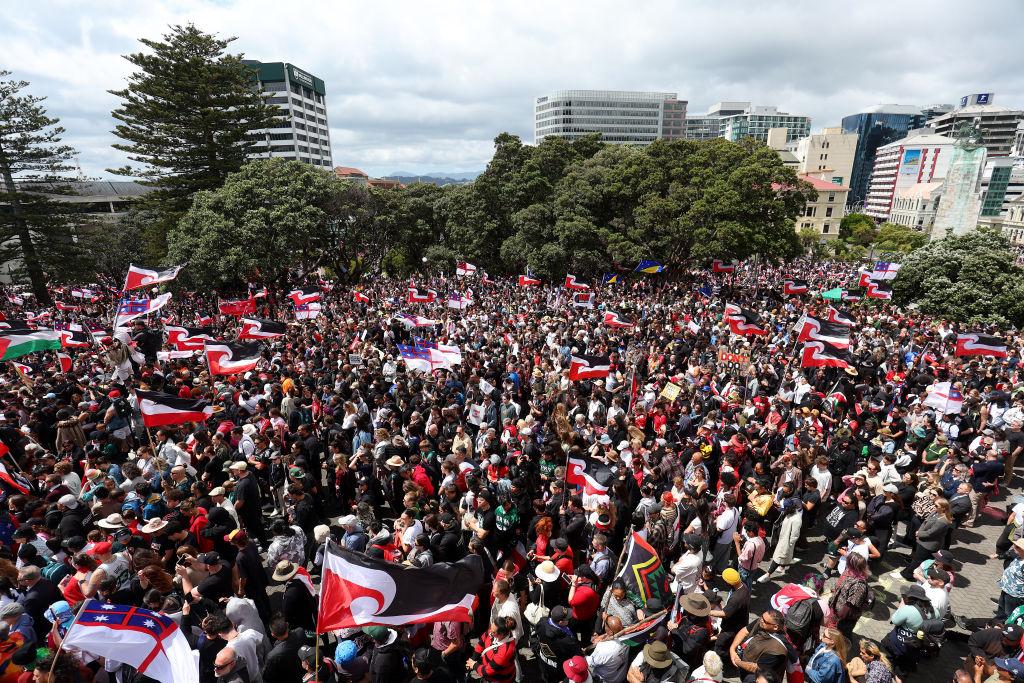WELLINGTON, New Zealand—Māori and a large number of non-Māori supporters arrived at the New Zealand Parliament in Wellington on Nov. 19 after a nine-day march (hikoi) from Auckland in the country’s north.
In contrast to protests during the pandemic, there was no hostility from the public, politicians, or police as between 35,000 and 40,000 people arrived to take on another contentious government policy.





